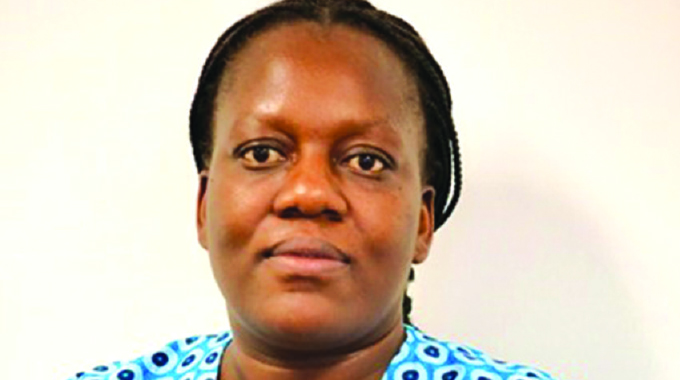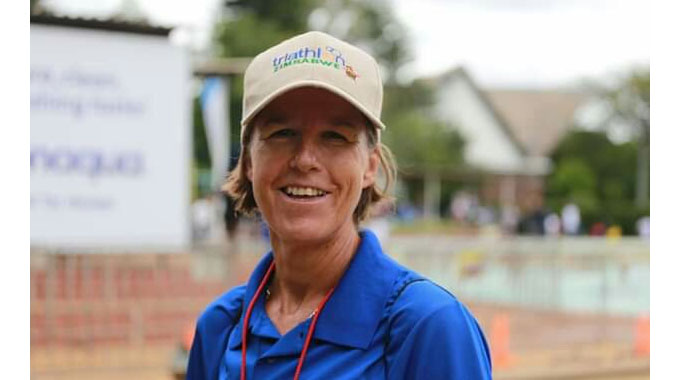Celebrating the crucial role of women in science at the University of Zimbabwe

Sifelani Tsiko
Agric, Environment & Innovations Editor
In the spirit of celebrating International Women’s Day, The Herald profiles University of Zimbabwe women who have played a major role in advancing gender equality in the field of science and innovation.
A number of challenges still hold back women when it comes to research, science and innovation.
On average, women in science publish less and win fewer grants and promotions than men do, they still grapple with harassment, marginalisation and fewer opportunities to excel.
This, at times, drives promising researchers out of science, reducing the number of women that make it when it comes to research and innovation.
In Zimbabwe, women who make half of the researchers running major laboratories and innovation hubs are increasingly rising up to the challenge and coming to the forefront of cutting edge discovery and knowledge production ever since the country started the implementation of heritage – based Education 5.0 for the modernisation and industrialisation of the country.
More and more women are taking up leading roles in coming up with ground-breaking ideas under Education 5.0 based on five major components that include teaching, research, community service, innovation and industrialisation.
Women are fast becoming a major force to reckon with as the nation moves forward towards innovation led and knowledge-based economy.
The Herald is celebrating the University of Zimbabwe women who have taken up leading roles, coming up with ground-breaking ideas and innovations, spearheading scientific endeavours and leading science bodies.
This serves to bring hope, highlight progress and inspire universities and other quasi – Government research bodies to continue their efforts to push hard for true gender equality.
Professor Idah Sithole Niang – UZ Dean – Faculty of Science
Dr Sithole Niang is an award winning professor, plant breeder and biotechnology science expert who heads the UZ science faculty and has written numerous publications that have been published in high profile journals.
Last year, she was awarded the Scientist of the Year 2021 Award by the International Research Achievements Centre in Montreal, Canada. She has served in a number local, regional and international bodies on science, research and innovation.
Prof Sithole-Niang has over the years trained a number of Bsc, Msc and PhD students who have managed to excel in various local, regional and global entities.
Following the roll out of the new UZ Strategic plan 2019-2025, her faculty has redefined itself and is pressing ahead to become known for generation and application of scientific knowledge and data that will provide solutions to problems in industry and society, create wealth through intellectual property and new discoveries and enhance socio-economic and human capital development.
“To this end our laboratory responded to help to address two aspects namely; provision of molecular biology – grade reagents for import substitution, and the provision of antibiotics to help address antimicrobial resistance (AMR),” she said.
“There are two groups of bacteria that are distinguishable by staining. We have developed antibiotics that in one case, treat the entire group definitively, and in the other that treats Methicillin-resistant Staphylococcus aureus infections.
“We have taken the production of these antibiotics further by driving synthesis using light. We have other innovations that exploit the use of microorganisms that will not be discussed here.”
Prof Sithole-Niang believes strongly that girls and women in science need every ounce of that courage for themselves to advance and contribute to creating the knowledge and impact that shapes the country and the continent as a whole.
“Women are equally capable of innovating and excelling in science and should be mindful of ethics and integrity at all times. There is no limit to the sky and mentorship is key,” she said.
Dr Electdom Matandirotya, Faculty of Science/Space Science and Applied Physics Department
She is another young woman who has risen to stardom at the University of Zimbabwe.
She served as the chairperson of the Space Science and Applied Physics Department from 2018 up to 2022. During her tenure as chairperson, she led the process of revision and introduction of new programmes in the department.
She was also a key champion in the establishment of the department of Electronics and Telecommunication under the Faculty of Computer Engineering Information and Communication.
As a chief scientist, she has made significant strides in the space science and space technology arena, providing mentorship to the junior scientists in the Zimbabwe National Geospatial and Space Agency.
She also participates actively in national awareness programmes to help young learners understand space concepts and appreciate the significant roles played by the space industry.
Dr Matandirotya is a recipient of the 2022-2023 TWAS -NAPI grant for a project focusing on the measurement and modelling the effects of geo-magnetically induced currents in the Zimbabwean power grid.
This project will aid the understanding of the national grid response to adverse space weather and will assist in the planning of all installations of all grounded technological systems which could be affected by GICs. Her research on space weather, ionospheric modelling as well as satellite subsystem designs.
“Women are making recognisable efforts in science and innovation. Given the tools and space, women will continue delivering great goods and services that will bring the much needed change in various sectors,” she said.
Tafadzwa Muusha
The 26-year-old is another rising innovator at the UZ Innovation Hub and a post graduate student in Mechatronics and Artificial Intelligence.
As an undergraduate student, she developed an automated walking cane, which acts as an artificial vision tool, to assist visually impaired persons experience safe and independent mobility.
The walking cane detects above ground obstacles and gives feedback to the user. It has a global positioning (GPS) system that provides the user’s exact location at any given time, communicating through its mobile application.
“The innovative project was the culmination of my passion to provide innovative and technologically driven support solutions, and interactive platforms to the physically challenged,” she said.
With this project, she won the World Summit on Information Society (WSIS) Forum 2021 Hackathon International Competition, under the Ageing Better with ICTs theme. Her team competed against 872 teams made up of 1 116 participants from 48 different countries world-wide, in 2021.
She received the University of Zimbabwe Innovator Award in 2021 for her innovations.
Together with the University of Zimbabwe Innovation Hub, she launched a start-up company which aims to manufacture various smart assistive devices for persons with disabilities, including the automated walking cane.
“Women continue to be under-represented in the fields of science and technology, both in academia and the business sector, despite substantial advancements in technology over the past few years. Women are much less likely to enrol in many science and technology fields,” Muusha said.
“Only 1 in 5 professionals in domains like artificial intelligence are female. This is due to a number of factors, primarily relating to the position that women now have in society as well as ingrained stereotypes that create glass ceilings and favour male participation in the workforce.
“But, it is also a result of lack of information, which puts young women in the tough position of choosing a career with limited awareness of potential options.”
She said there is a need to encourage women and girls of all ages to participate fully and equally in science and innovation.
“We need to provide a path by eliminating gender biases that restrict girls from aspiring to careers in science. Promote gender equity in scientific professions, and advocate for elimination of barriers that women in science and innovation still face,” she said.
“We also need to incentivise and aid initiatives for inclusion. Institutions should honour, reward and encourage initiatives to promote diversity, equity, and inclusion.”
Tafadzwa Christine Dhliwayo
She is 31 and a Msc student in the Faculty of Science – Food Nutrition and Dietetics, and is another notable science and innovation achiever at the UZ.
She developed a multigrain instant porridge from finger millet (zviyo/rukweza) as the main ingredient.
Her innovations were motivated by the high rates of malnutrition in children under 5 together with inadequate weaning foods on the market, climate change, poor management of water, population increase, declining yields of major cereals and inadequate access to enough food in the country.
“The feasibility of using finger millet to produce a dual food that is an instant complementary porridge and a premix powder that can be reconstituted to make an instant beverage in the household and commercially is now a reality. I did this successfully,” she said.
“Traditional grains are drought resistant and have been for a long time underutilised yet they have a high nutrient content. Rukweza (Finger Millet) (Eleusine coracana) is one of the important cereals among the small millets and it is a good source of iron, magnesium and dietary fibre.”
With the support of the UZ Innovation Hub, she managed to open and register a company to mass-produce the product. She now awaits funding.
“Women in science and innovation serve as mentors and role models to other women and girls. This helps to eliminate the gender gap in science and technology. The distinctive perspectives and knowledge in women help them to identify solutions that are innovative and lead to the economic growth of the nation,” she said.
“Their diverse experiences and backgrounds allows them to approach scientific problems in unique ways leading to new discoveries and innovations.”










Comments